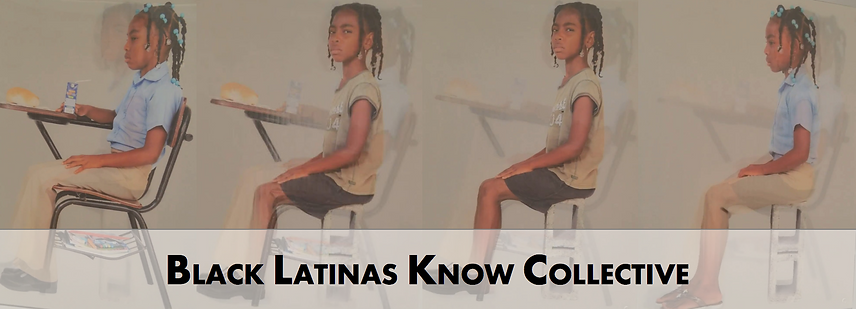“Mama’s Baby, Papa was a Racist”
- BLKC
- Oct 5, 2019
- 4 min read
“Mama’s Baby, Papa was a Racist” [1]
Excerpted from the book MotherLand: Afro-Puerto Rican Women Forging Good Lives and Fighting for Environmental Justice[2]

As was common for rural girls of her race and class at the time, my mother only completed elementary education. She learned the very basics of reading, writing, addition, and subtraction. She had been left at her adoptive parents’ door all those years earlier, so she had no birth certificate formally attesting to her existence. It was her adoptive parents’ idea then to inscribe my mother in the birth registry when she was about nineteen years old—the year of her birth is uncertain—because they believed that my father would marry her. They wanted to make sure that she had the documents needed for marrying Alejandro, the man over thirty years her senior with whom she had recently decided to go live as “husband and wife.” They didn’t know yet that my father had no intention of ever marrying my mother. For him, having four mixed race children with my mother and “recognizing them” by granting them his last name was one thing, but legal marriage was another. He was not willing to share his money or bestow property upon these late-in-life children. He had divorced his first wife with whom he had four older children, two of whom were a few years older than his new “wife.” The divorce from his wife nearly wiped out his savings even though he was the one who decided to get the divorce. But he was a miser, and having to share his savings with his ex-wife and older children was something he would not soon forgive, and would resent for the rest of his life. For their part, my white half-siblings would not soon forgive my father for taking as a “wife” that poor black girl-woman and, adding insult to injury, fathering four bastard, mixed race children with her. My father did not plan to ever enter a legal marriage again. His uppity white family believed that my mother, a poor black girl-woman, was beneath them in every way. But his brothers and sisters were glad that their brother, now an old man, found that girl-woman to take care of him in that forsaken town, in that arrabal (slum) of a neighborhood where he had chosen to open a general store.
My father’s older children would go on to spread rumors about my siblings and me. They said things like, “those children are not really our father’s,” “their mother is a loose, no-good woman who only wants our father’s money,” “the two boys are our brothers, but the two girls are not our sisters,” “the youngest girl, the dark-skinned one, she is not our sister, she is not a Lloréns.” I am the youngest daughter and the most Afro-descendent “looking” of my mother’s four children. I am the only child who looks like her and her black family. My mother’s personal project of birthing “whitened” children that would “adelantar la raza” (better the race) had been successful until I came along. This attempt at “erasing the stain of blackness” from black families was a common practice in her time. Today individuals who are part of anti-racist and progressive social circles understand this practice to be an act of internalized racism and self-hatred. I understand that for my mother, a nearly illiterate poor black woman, marrying a white man and birthing white children was a strategy to gain social status and privileges to which she would not have access otherwise.

Ever since I can remember, my paternity has been a source of rumors, contention, and jokes. Growing up, the joke I heard was that an older man nicknamed Limber, who was our close neighbor and a beloved part of my mother’s fictive kin network, was my “real” dad. Even my father was in on this joke. Limber was a dark black man, so I was said to look more like Limber than my pale-skinned, blue-eyed father and my three siblings. My three siblings are light skinned. They are much older than me. The third son, born nine years before me, is white and blond. When he was a baby, strangers would ask my mother if she was the child’s nanny and none would believe, even now, that she was his mother.
I was the fourth and last child. My mother blames my father’s advanced age of sixty when I was conceived as having weakened his white genes, making her black genes more dominant. My siblings were nearly grown when I was born. Unlike them, I only lived with my father until I was two years old, when my mother left him and began her life as a single mother. After separating from my father, my mother spent time with her family and with her new partner’s family. These were black folks who loved their blackness and who were proud to be black. Through them I learned to have pride in my blackness and to practice, respect and honor Black Puerto Rican culture.
Hilda Lloréns
[1] My title was inspired by Spillers, H (1987) “Mama’s Baby, Papa’s Maybe: An
American Grammar Book.” Diacriticis (17)2: 64-81.
[2] Under contract with the Decolonizing Feminisms: Antiracist and Transnational Praxis book series, University of Washington Press.



